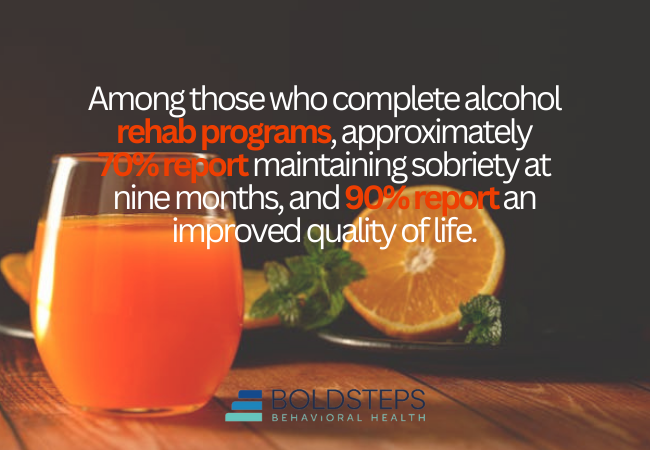Drug addiction can take a profound toll on every aspect of a person’s life, from their physical and mental health to their relationships and career. Recovery, while challenging, is possible with the right support system and treatment plan. Drug abuse treatment centers play an integral role in helping individuals reclaim their lives by addressing the root causes of addiction, providing tools for sobriety, and fostering a supportive environment for healing.
At Bold Steps Behavioral Health, we offer comprehensive and compassionate care for individuals seeking to overcome substance abuse. Let’s explore how a drug rehabilitation center can help you or your loved one embark on the transformative journey to recovery.
1. Understanding the Role of Drug Abuse Treatment Centers
Drug abuse treatment centers are specialized facilities designed to help individuals break free from the grip of substance use disorders. These centers provide:
- Safe Environments: A space free from triggers and temptations, allowing individuals to focus solely on their recovery.
- Professional Expertise: Licensed therapists, counselors, and medical professionals who understand the complexities of addiction.
- Comprehensive Treatment Plans: Programs tailored to meet the unique needs of each individual, ensuring the best chance of success.
Whether dealing with opiate addiction, benzodiazepine dependency, stimulant abuse, or alcohol addiction, these centers address the specific challenges associated with each substance.
2. The Detoxification Process: A Critical First Step
For most individuals, the journey to recovery begins with detoxification. At detox and rehab centers, this medically supervised process helps rid the body of harmful substances while managing withdrawal symptoms.
- Opiate Addiction Treatment: Medications like buprenorphine or methadone may be used to ease withdrawal symptoms and cravings.
- Alcohol Addiction Treatment: Medical detox is crucial to manage severe withdrawal symptoms, such as seizures or delirium tremens.
- Benzodiazepine Treatment: A gradual tapering process is employed to safely reduce dependency and prevent complications.
- Stimulants Treatment: Detox focuses on stabilizing psychological symptoms, such as anxiety and depression, which are common during stimulant withdrawal.
Medical detox ensures individuals are physically stable and ready to begin the next phase of treatment.
3. Comprehensive Therapy for Long-Term Recovery
Therapy is the cornerstone of addiction treatment, addressing the emotional and psychological aspects of substance abuse. At rehabilitation centers for drugs, evidence-based therapies help individuals understand the root causes of their addiction and develop healthier coping mechanisms.
- Cognitive Behavioral Therapy (CBT): Helps individuals identify and change negative thought patterns that contribute to addictive behaviors.
- Dialectical Behavior Therapy (DBT): Focuses on emotional regulation and improving interpersonal relationships.
- Group Therapy: Provides peer support, allowing individuals to share experiences and learn from others in recovery.
- Family Therapy: Involves loved ones in the recovery process, repairing relationships and creating a supportive home environment.
- Holistic Therapies: Includes mindfulness, yoga, art therapy, and other approaches that address the mind, body, and spirit.
These therapies empower individuals to rebuild their lives with healthier habits and improved emotional resilience.
4. Tailored Treatment Programs for Every Need
Not all individuals require the same level of care. Drug and rehabilitation centers offer a range of programs to meet the varying needs of clients:
- Partial Hospitalization Program (PHP): A structured program that provides intensive therapy during the day, allowing individuals to return home in the evening.
- Intensive Outpatient Program (IOP): Offers flexibility for individuals who need comprehensive care but wish to maintain work, school, or family commitments.
- Outpatient Treatment: Designed for those with mild addiction or as a step-down program following inpatient care, allowing clients to attend therapy sessions while living at home.
These options ensure that treatment is accessible and adaptable to individual circumstances.
5. Life Skills Training for Lasting Independence
Recovery isn’t just about abstaining from substances; it’s about building a fulfilling, sustainable life. Rehab centers help clients develop essential life skills, such as:
- Time Management: Structuring daily routines to promote productivity and reduce idle time.
- Healthy Coping Mechanisms: Learning how to manage stress, anxiety, and triggers without turning to substances.
- Career Support: Providing resources for finding employment or pursuing education.
- Financial Management: Teaching budgeting and financial planning to regain stability.
These skills empower individuals to regain their independence and confidence in life after treatment.
6. Relapse Prevention Strategies
Relapse prevention is a crucial aspect of treatment. Drug abuse treatment centers equip clients with tools and strategies to maintain long-term sobriety:
- Trigger Identification: Recognizing the people, places, or situations that may lead to relapse.
- Coping Skills: Developing healthy ways to deal with cravings or stressful situations.
- Support Networks: Encouraging participation in peer support groups like Alcoholics Anonymous (AA) or Narcotics Anonymous (NA).
- Aftercare Planning: Creating a post-treatment plan that includes continued therapy and support group attendance.
Bold Steps Behavioral Health emphasizes relapse prevention as part of our commitment to long-term recovery success.
7. Family Involvement: Strengthening Support Systems
Addiction affects not only the individual but also their loved ones. Many rehab alcohol centers and drug treatment programs include family therapy to:
- Address the emotional impact of addiction on family members.
- Educate loved ones about addiction and recovery.
- Improve communication and rebuild trust within the family unit.
By fostering healthy family dynamics, treatment centers create a supportive foundation for long-term success.
8. Holistic Healing: Beyond Traditional Treatment
At drug abuse treatment centers, holistic therapies complement traditional approaches to create a well-rounded recovery experience. These may include:
- Yoga and Meditation: Promotes physical and mental relaxation.
- Nutritional Counseling: Encourages healthy eating habits to support overall well-being.
- Creative Therapies: Allows individuals to explore self-expression through art, music, or writing.
These therapies help clients rediscover joy and purpose beyond substance use.
9. The Importance of Aftercare Support
Life after rehab can present unique challenges. Aftercare services provide the ongoing support necessary to maintain sobriety:
- Regular check-ins with therapists.
- Alumni support groups to stay connected with peers.
- Continued access to resources and relapse prevention programs.
Bold Steps Behavioral Health offers comprehensive aftercare to ensure clients have the tools and support they need to thrive.

Family Involvement: Healing Relationships and Strengthening Support
Addiction doesn’t only impact the individual struggling with substance abuse; it affects their entire family. Broken trust, strained communication, and emotional wounds are common consequences of addiction. Family involvement in the recovery process is crucial to rebuilding these relationships and creating a supportive environment that fosters long-term sobriety.
1. The Role of Family in Recovery
Family members often play a pivotal role in helping their loved one stay motivated and committed to recovery. By actively participating in the process, families can:
- Gain a deeper understanding of addiction as a disease.
- Learn healthy ways to support their loved one without enabling behaviors.
- Address their own emotional challenges and find healing.
2. Family Therapy and Education Programs
At Bold Steps Behavioral Health, family therapy is a key component of our treatment programs. These sessions help families:
- Improve communication and resolve conflicts.
- Set healthy boundaries to protect their own well-being and encourage accountability.
- Rebuild trust through honest and open dialogue.
Our family education programs also provide resources and insights to help loved ones better understand addiction and recovery.
3. Strengthening the Support System
A strong, healthy support system is essential for long-term recovery. Families that engage in therapy and education are better equipped to offer encouragement, empathy, and practical support as their loved one transitions back to everyday life. Together, they can create a foundation for lasting success.
Why Choose Bold Steps Behavioral Health?
At Bold Steps Behavioral Health, we take pride in being one of the best rehab centers in New Hampshire. Here’s why individuals choose us:
- Personalized Care: Tailored treatment plans for opiate, alcohol, benzodiazepine, and stimulant addiction.
- Comprehensive Programs: From detox to aftercare, we provide support at every stage of recovery.
- Expert Team: Compassionate professionals dedicated to your success.
- Family-Focused Approach: Involving loved ones to create a strong recovery foundation.
- Supportive Environment: A safe, nurturing space designed for healing and growth.
Conclusion
Addiction may feel overwhelming, but it is never too late to reclaim your life. With the right treatment and support, recovery is not only possible but achievable. At Bold Steps Behavioral Health, we provide a compassionate, evidence-based approach to help individuals and families overcome addiction and build a brighter future.
If you or a loved one are ready to take the first step, we’re here to guide you. Contact Bold Steps Behavioral Health at (603) 915-4223 or visit Bold Steps Behavioral Health to learn more about our programs and services. Let us help you take the bold step toward lasting recovery today.
Frequently Asked Questions (FAQs)
How do treatment centers address different types of addiction?
Treatment centers offer specialized programs for various addictions, including opiate addiction treatment, alcohol addiction treatment, benzodiazepine treatment, and stimulants treatment.
What happens during detox at a treatment center?
Detox is the first step, where the body safely removes substances under medical supervision. This process helps manage withdrawal symptoms and prepares individuals for therapy.
What therapies are used at drug abuse treatment centers?
Centers use evidence-based therapies such as Cognitive Behavioral Therapy (CBT), Dialectical Behavior Therapy (DBT), group therapy, and holistic methods like mindfulness and yoga to address the root causes of addiction.
What types of treatment programs are available?
Programs include Partial Hospitalization Programs (PHPs), Intensive Outpatient Programs (IOPs), and Outpatient Treatment, allowing flexibility based on individual needs and severity of addiction.
Do treatment centers provide support after rehab?
Yes, aftercare is a critical part of recovery. It includes ongoing therapy, support groups, and relapse prevention plans to help maintain long-term sobriety.
Can family members participate in the recovery process?
Many treatment centers offer family therapy and education programs to involve loved ones, helping repair relationships and build a supportive recovery environment.

